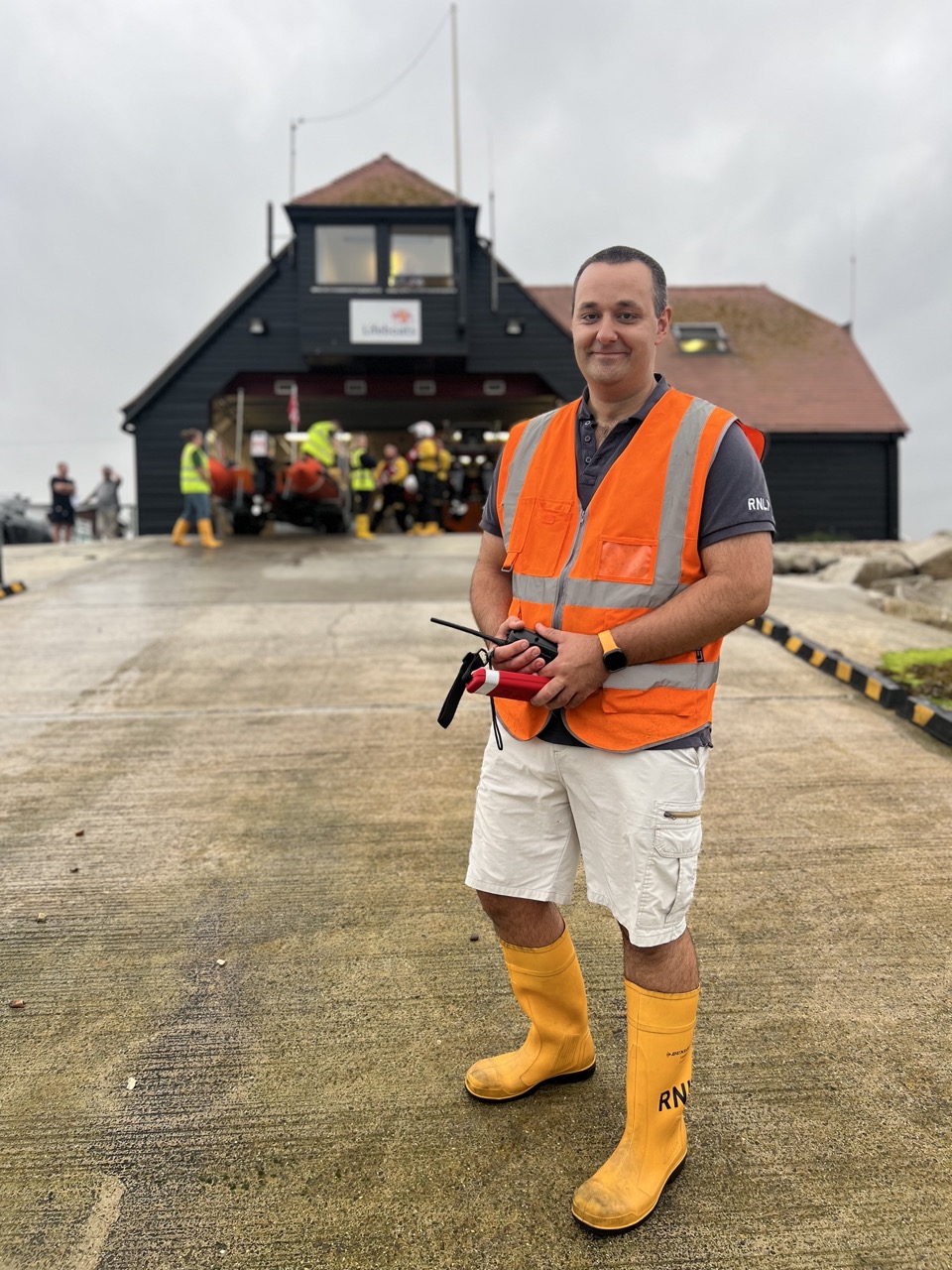Joe Earley, an associate ambulance practitioner based at SCAS’ North Harbour Resource Centre in Portsmouth, spends his working days (and nights) responding to 999 emergencies across south east Hampshire. When he isn’t saving lives on land, Joe volunteers his time with the Royal National Lifeboat Institution (RNLI) at Portsmouth Lifeboat Station, helping to rescue those in trouble at sea.
Joe has seen the devastating consequences of water-related incidents and is urging people to take simple steps to stay safe:
- Remember that emergencies can happen in seconds, whether on land or sea
- Learn the RNLI’s ‘Float to Live’ technique – if you get into difficulty in the water, lean back with ears submerged, extend your arms and legs, and control your breathing until you can either swim to safety or call for help
- Always dial 999 immediately: ask for the fire service if the emergency is at rivers, lakes or canals, and the Coastguard, if it’s at sea or on the coast
- Check the weather forecast and tide times before heading to the coast to avoid being caught out
- Be aware of the hidden dangers beneath the water surface in rivers, lakes and canals – cold water shock, strong currents or submerged objects can all prove fatal
Joe said: “People don’t always realise just how quickly things can go wrong. One moment you can be enjoying yourself on the water, and the next you can find yourself – or someone you’re with – in real danger.”
“By following some simple safety advice, you can dramatically reduce the risk of tragedy and make sure your day ends safely. As someone who works on the frontline with the ambulance service and volunteers with the RNLI, I know just how important it is that we all treat the water with respect.”
SCAS is supporting national campaigns by the RNLI and other safety organisations this summer to highlight the risks and encourage people to plan ahead, stay alert and know what to do in an emergency.
For more information on staying safe around water, visit rnli.org/safety
Ends

